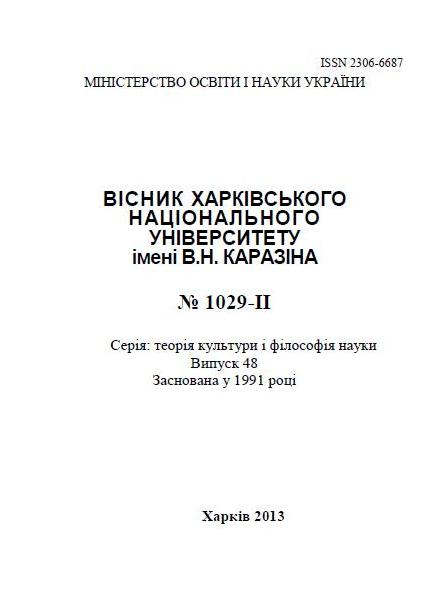У ИСТОКОВ ЧЕЛОВЕЧЕСТВА
Abstract
Основной целью настоящего очерка является стремление его автора обосновать
положение о том, что, начиная с самых первых своих шагов, человек трудился не
инстинктивно, а вполне осознанно, и что становление сознания (и самосознания)
предшествовало его непосредственной деятельности.
Вербицький В.Г. БІЛЯ ДЖЕРЕЛ ЛЮДСТВА Основною метою цього нарису є
прагнення його автора доказати cтвердження про те, що, починаючи із самих
перших своїх кроків, людина працювала не інстинктивно, а цілком усвідомлено, і що
становлення свідомості (і самосвідомості) передувало її безпосередній діяльності.
Ключові слова: витоки людства, Homo habilis, природні знаряддя, штучні
знаряддя, суспільне виробництво.
V.G.Verbitsky HUMANITY SOURCES The main goal of this essay is aspiration of its
author for proof that beginning from the first his steps the man was working not instinctively but
fully realizable and that formation of his consciousness (and self-consciousness) preceded his
immediate activity.
It is (quite) realized by science that the origin of a man is obliged to five factors:
straightwalking, development of hand and brain, social character of vital activity and elements
of articulated speech. As F. Engels proved, the fact of using meat food by human has played a
considerable role in his brain development. The implement activity of distant ancestor of human
had a strongly pronounced social character and was accompanied by elements of articulated
speech.It took place not 2 millions years ago, as N. Dubinin considered, but 1 million 750
thousand years ago, when east-African kind was formed, as N. Kabanov indicates.
Keywords: humanity sources, Homo habitis, labour theory of F. Engels, natural
implements, man-made implements, social production.




